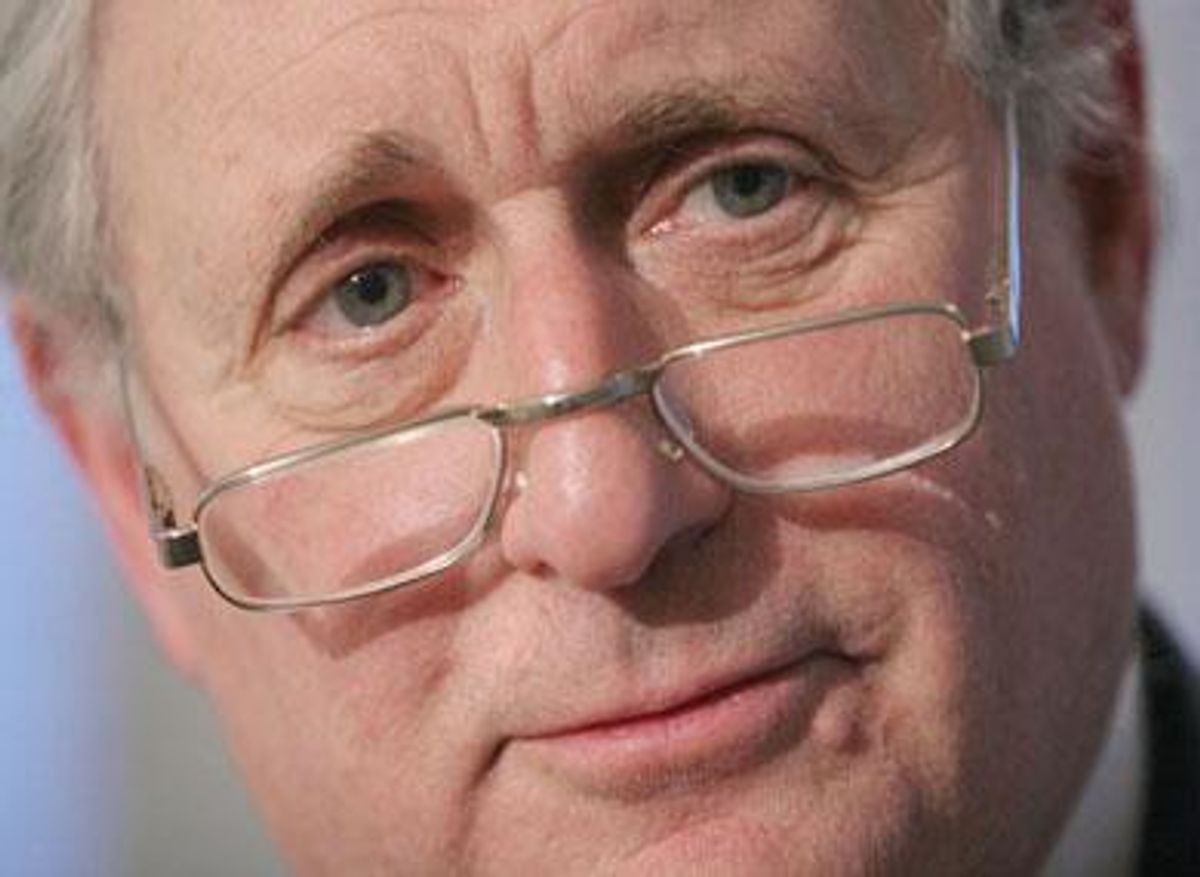World
Levin Bullish On A Moratorium

By continuing to use our site, you agree to our Private Policy and Terms of Use.

Sen. Carl Levin of Michigan pushed the idea of putting a moratorium on discharges under "don't ask, don't tell" during a Senate Armed Services Committee hearing Tuesday on the Army's defense authorization request for fiscal year 2011.
Levin, who chairs the committee, kicked off questioning on the gay ban by asking Secretary of the Army John McHugh and Army Chief of Staff Gen. George Casey Jr. whether they would "object" to halting all discharges under the policy while a plan for implementation of repeal is being formulated.
McHugh initially responded that if Congress and President Barack Obama instructed the Army to stop discharges, "I can't see that we would object to that." But later McHugh added, "This process is going to be difficult and complicated enough -- anything that complicates it more I think I would be opposed to."
Levin responded curtly, "Well, if we do that, we'll try to make it simple and straightforward."
Casey advised against that tactic, saying it would "complicate" the implementation review process that Gates had set in motion.
"We would be put in the position of actually implementing it while were studying the implementation," he said.
Sen. John McCain of Arizona, the ranking member on the committee, was the only GOP senator to engage in a serious line of questioning about the policy.
"Senator Levin just said now instead of going through the study that the secretary of Defense has called for, there are forces who want to impose a moratorium before any decision is made," McCain said.
McCain then pressed McHugh again to offer his personal feedback on the effects of passing a moratorium.
"If you're asking for my personal opinion as to the effects of a moratorium, we have any number or cases under way pursuant to the current law that would be greatly complicated," answered McHugh.
Levin followed up by asking which cases might be problematic, and McHugh cited the proceedings surrounding Army lieutenant Dan Choi's discharge.
In his final comments McCain bemoaned the inclusion of LGBT measures in defense funding bills.
"Unfortunately, last year we put hate crimes on the defense authorization -- for the first time in history, we put legislation that didn't have anything to do with the defense authorization in on an authorization bill," he said, "and I'm greatly concerned about what could be put in this authorization bill since the precedent was shattered last year by the majority."
"Don't ask, don't tell" was originally passed in 1993 as an amendment to the Department of Defense authorization bill.
Sen. Joseph Lieberman of Connecticut, who is preparing to introduce
a repeal bill in the Senate, asked whether he had understood correctly
from a previous conversation that General Casey "did not have a hard
position either for or against" repeal.
"I think that's fair,"
responded Casey. "I do have serious concerns about the impact of repeal
of the law on a force that's fully engaged in two wars and has been at
war for eight and a half years."
Sen. Mark Udall of Colorado
asked no questions of the witnesses but made a strong statement
supporting the idea of a moratorium, given that the Pentagon is
exploring how to implement a repeal, not when or if.
"I just
think that we should do everything possible," Udall said, "to ensure
that as few service members are discharged between now and then. Who's
going to be the last gay service member to be discharged under 'don't
ask, don't tell?'"
Levin ended the hearing by asking McHugh
and Casey to request from their legal department a review of how a
moratorium would complicate discharge cases any more than the decision
by the president to end the policy.
Following the hearing,
Levin told The Advocate that in his view halting discharges isn't any
more problematic than actually ending the policy.
"I don't think
it complicates even as much as the president's announcement that the
policy is going to end," he said. "Either way, there's a complication."
Levin,
who supports full repeal, said there was "a much greater chance" of a
moratorium being included in the defense authorization bill than of a
repeal measure.
"I think there would be more support for that than there would be for all-out repeal in the bill," he said.
When
asked if he thought he could build support for a moratorium in
committee, he said, "I think that's the more realistic goal."
Although Levin deemed the moratorium more politically feasible, advocacy groups were still angling for full repeal.
"Regarding
today's debate on a 'don't ask, don't tell' moratorium, the focus now should be on full
repeal in the fiscal year 2011 Department of Defense authorization
bill," said Aubrey Sarvis, executive director of Servicemembers
Legal Defense Network.
Alex Nicholson, executive director of the
gay military group Servicemembers United, explained that in the eyes of
the military, there's no difference between implementing full repeal
and imposing a moratorium.
"A moratorium would have the same
practical outcome on the ground as full repeal, and that's how the
service secretaries and the service chiefs are going to evaluate it,"
Nicholson said. "From their point of view, it would not make sense to
support a proposal that has the same impact as full repeal while they
are still undertaking an analysis of how to mitigate any issues that
may arise from full repeal."
Nicholson urged committee members
to use subsequent hearings to inquire about legislation that would lock
in full repeal now but allow military leaders the time they have
requested to formulate an implementation plan.
"This type of
proposal serves the ultimate interests of all parties involved, and it
deserves to be discussed at these hearings," he said.